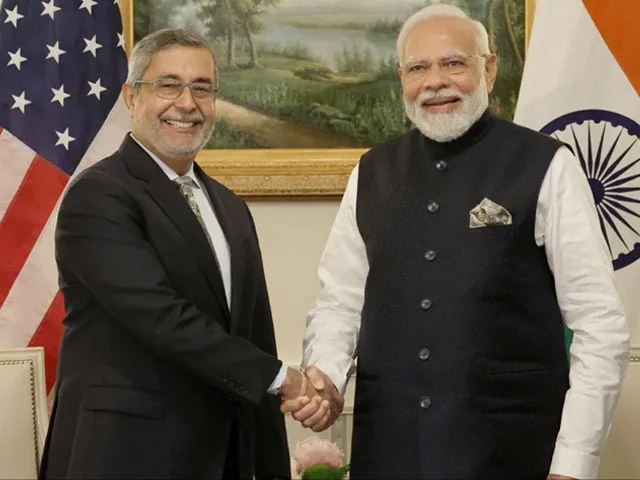In a significant move towards bolstering India’s semiconductor industry, Prime Minister Narendra Modi recently held a crucial meeting with Micron CEO Sanjay Mehrotra. The meeting, focused on discussions surrounding semiconductor manufacturing, aimed to explore opportunities for collaboration and investment in this critical sector. This article delves into the details of the meeting and highlights the potential implications for India’s technological advancement.
PM Modi’s Vision for Semiconductor Manufacturing in India
During the meeting, Prime Minister Modi emphasized the need for a robust semiconductor manufacturing ecosystem in India. Recognizing the critical role that semiconductors play in powering various technological innovations, he stressed the importance of self-reliance and domestic production. By reducing dependence on imports and fostering indigenous manufacturing capabilities, India can strengthen its technological prowess and become a global player in the semiconductor industry.
Micron’s Invitation to Boost Semiconductor Manufacturing in India
In line with his vision, Prime Minister Modi extended an invitation to Micron, one of the world’s leading semiconductor companies, to invest in and expand their operations in India. By collaborating with Micron, India can leverage the company’s expertise and experience to enhance domestic semiconductor manufacturing capabilities. This strategic partnership has the potential to revolutionize the country’s technology landscape, fuel innovation, and create employment opportunities in the semiconductor sector.
Implications for India’s Technological Advancement
The collaboration between Prime Minister Modi and Micron holds immense potential for India’s technological advancement. Here are some key implications:
- Strengthening the domestic semiconductor ecosystem: By partnering with Micron, India can tap into the company’s advanced manufacturing techniques, cutting-edge technologies, and research and development capabilities. This collaboration will help create a robust semiconductor ecosystem within the country, enabling indigenous production of high-quality chips.
- Reducing dependence on imports: Currently, India heavily relies on imports to meet its semiconductor requirements. This collaboration aims to reduce this dependency and develop self-sufficiency in semiconductor manufacturing. By enhancing domestic production capacities, India can safeguard against supply chain disruptions and establish a more secure and sustainable technology infrastructure.
- Promoting innovation and job creation: The collaboration between Micron and India opens up avenues for technological innovation and research. As semiconductor manufacturing grows within the country, it will create a ripple effect, leading to the emergence of a vibrant ecosystem of startups, research institutes, and skilled professionals. This, in turn, will drive employment generation and boost India’s position as a global technology hub.
Prime Minister Narendra Modi’s meeting with Micron CEO Sanjay Mehrotra marks a significant milestone in India’s pursuit of self-reliance in semiconductor manufacturing. By inviting Micron to invest in India and collaborate on strengthening the country’s semiconductor ecosystem, the government aims to enhance domestic capabilities, reduce dependence on imports, and foster technological innovation. This strategic partnership has the potential to position India as a global player in the semiconductor industry, paving the way for a technologically advanced and self-sufficient nation.
